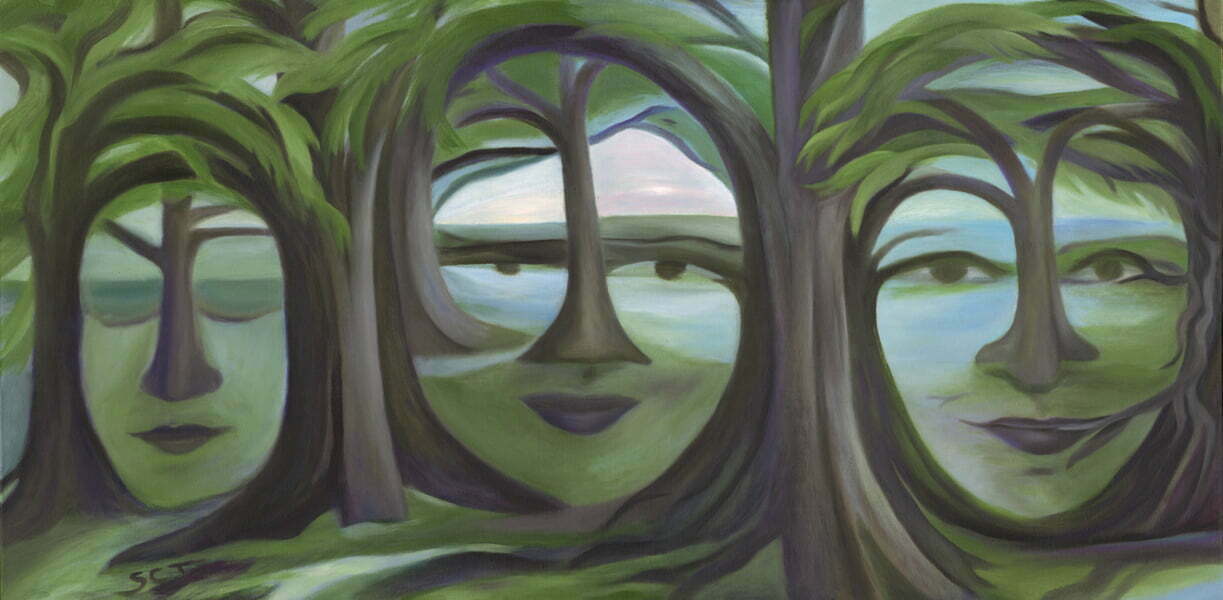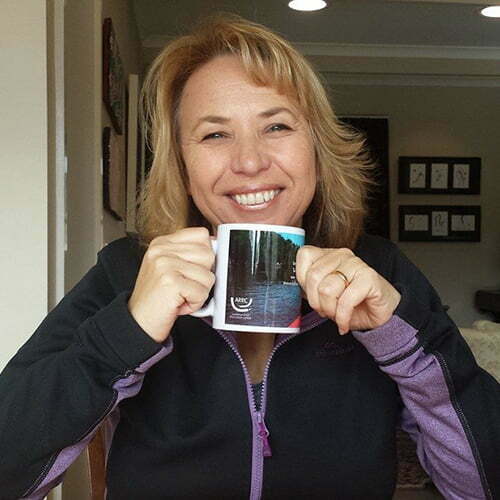The beautiful painting featured above is sourced from a collection by Susan Cohen Thompson – you can view the full collection here.
I was incredibly lucky to travel through Italy this time last year. Little did I know, as I spent three weeks traversing the masonry of its cobblestone streets, the misfortune the country would face a year on.
Italy was one of the worst hit nations by the COVID pandemic, and we’ve seen the virus wreak havoc globally since. While still not out of harm’s way, Australia has coped better than others, although the recent upsurge in cases is worrying.
As a global community, we are in the midst of extreme uncertainty. The pandemic; and for us nationally, the bushfires and floods that preceded COVID; have all forced us into unknown situations – this is deeply uncomfortable, when our lives and culture seek certainty.
I was reflecting on two interviews Siwan held – with Kate McMaster, a capacity development consultant, social entrepreneur, social scientist and sustainability practitioner; and Ian Rutherfurd, a fluvial geomorphologist with 30 years experience – focusing on the ideas of resilience and ‘Bouncing Forward’. In both discussions, Kate and Ian talk about COVID as being a potentially transformative experience, enabling a time for deep reflection and thinking.
The ideas Kate and Ian share resonated with me as it seems we have an opportunity to pause and adjust the lens with which we view our relationship with nature.
The ‘new’ lens we move forward with
COVID has been a precursor to climate change, arising from our collision with nature. Globally, we’ve invaded tropical forests and other wild landscapes, which harbour many species of animals and plants. We’ve cleared land on mass scale, causing warming at local, regional and global levels.
With habitat loss, and shifting climate zones, we’ve seen wildlife migrate to new places and interact with species they haven’t previously encountered, increasing the risk of new diseases emerging. Ebola, Zika, SARS and bird flu are among the list of animal-borne diseases that have occurred in response to human induced change.
Climate change isn’t a new concept, but it’s direct line of threat to all of us has quickly become prominent in this pandemic. The current circumstances have been a catalyst for mass change. Kate notes that we’ve all had to be more intentional about slowing down our pace and managing our resources more sustainably, and this needs to continue as we move forward with climate change as our primary lens. COVID has given humans and the systems we live in a chance to ‘pause’, and she emphasises the point that we now have the opportunity to redesign the world the way we want to.
The ability to redesign the way we work isn’t limited to an individual and community level – it’s happening at a systemic level. Halting all international travel seemed like an insurmountable action, yet we’ve done it. We’ve seen governments respond quickly because the threat of COVID is so tangible and imminent – how can we get a similar response to climate change?
In his interview, Ian made a comment about our relationship with the environment, and the impact it had on us moving forward. If this time allows us to recognise that we are part of the planet – that humans and the environment are interdependent – then we will be more likely to make the right choices moving forward. If, however, we see COVID and climate change as a continued threat from the environment – one that we need to defend ourselves from – we run the risk of employing defensive activities.
We must make a choice about which route we want to take.

Let’s not take inspiration from Homer’s method of making choices!
What does the future look like?
Well, it is uncertain – and we know uncertainty breeds conservatism politically. In agreement with Ian’s view, there is a very high risk that our government and systems will approach the next few years with defensive actions. This will be challenging, as we’ve made so much progress locally with climate change, yet it is systemic change that we need to continue doing this work at scale. It is likely, however, our government bodies will revert to old, familiar ways of thinking.
It is not impossible, however, as this unique scenario has shown us that systemic change can happen quickly. Albeit the measures have been reactive, if we can identify the points of difference between the decisions our authorities make going forward and the considerations given to climate change and equality issues, as Kate suggests, we have the power to bridge the gaps in that decision making.
Both Kate and Ian make the point that the way we can do this is by working from the inside out, starting with understanding and living our values – I wholeheartedly agree. We have the opportunity to act within our own spheres based on our values, and hope that our actions will snowball into systemic change when realised as a collective community effort.
For all of us this will look different. For me, it has reaffirmed the decision I made to follow a vegan diet. I have minimised my use of plastics, and have actively pursued shopping from fair trade, organic or cruelty free sources wherever possible and financially feasible. I have spent more time educating myself on matters that I care about, but lack knowledge on. Within our projects at the Australian River Restoration Centre, and my volunteering efforts in community organisations, I have made the choice to use my professional and interpersonal skills for positive change. Lastly, I have actively made time for rest and activities that replenish my reserves, as both Siwan and I have learned the tough way – we must fill our own bucket if we are to continue doing our part in a sustainable manner.
I encourage you to watch both videos above, spend some time reflecting on your experience through COVID, and have a think about the role you get to play moving forward.
Take me to the river
If you enjoyed reading this article, I encourage you to check out our podcast ‘Take me to the river’ where Siwan discusses with others, the issues and opportunities that relate to our connections with ourselves, each other and our planet.

